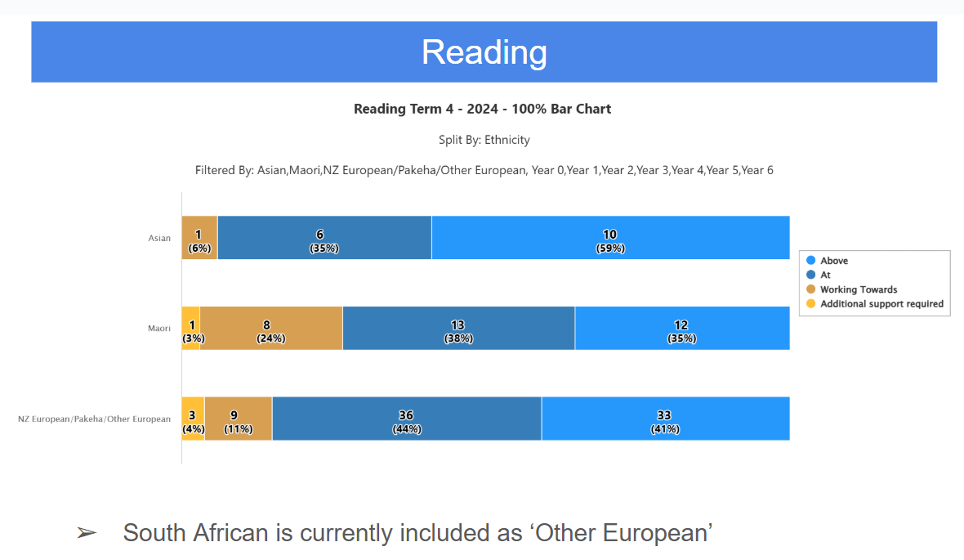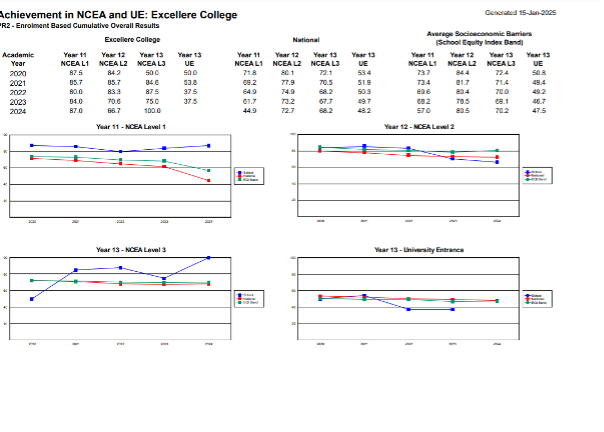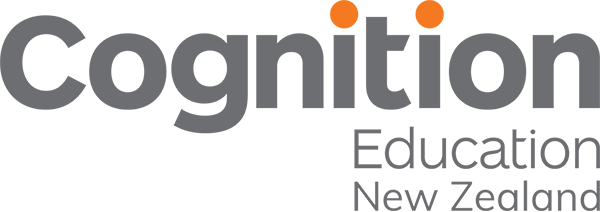Background and Context:
Excellere College is an area school facing the typical challenges of a diverse student population and the need for cohesive data practices across its Junior, Middle, and Senior Colleges. Cognition Education has maintained a long-standing relationship with the school, and this impact story focuses on the assessment-focused work undertaken in the past year.
Excellere College is an integrated Area School, with a special character based on Christian teaching, located in Te Kamo, Whangārei. The school roll is growing, currently 331 and expected to hit 350 by the end of the year. The roll cap for 2026 will go up to 450. Students are diverse, with 23% Māori, 10% Asian, 6% Middle Eastern/Latin American/African (MELAA), 3% Pasifika, and a growing South African/Afrikaans community, who are currently recorded within the European/Pākehā category (making up 77% of school roll) in the Student Management System (SMS). Excellere College is a member of Te Tai Raki Kāhui Ako.
The Challenge: A Fragmented Data Landscape
Principal, Andy Mouat, arrived at the school with a clear vision: a seamless assessment view for every student from Year 0 to Year 13. However, the reality was a “higgledy, piggledy approach” to data. Different assessment tools were used across the colleges, making it difficult to track student progress longitudinally and hindering effective handovers between year levels and colleges. Data was often shared in disparate formats like Word documents, leading to time-consuming double-handling and making meaningful school-wide analysis a significant challenge. Reporting data to the board felt “meaningless” at times, lacking the rich narrative and teacher voice needed for true understanding and informed decision-making.
Key Expectations:
The leadership team sought a more consistent approach to data collection, analysis, and presentation. Their key expectations included:
- Establishing a system for tracking student progress in a meaningful way across all year levels and colleges.
- Standardising data collection to improve efficiency and reduce double-handling.
- Developing the capacity of staff to interpret and utilise data effectively to inform teaching and learning.
- Being able to present clear, meaningful data to the board that reflected the story of student progress and achievement.
Implementation and Iterations:
The journey involved several key actions and some ongoing challenges:
- Deep Dive into Existing Data: Initial work focused on analysing past data to identify gaps in information and understand what was missing for a cohesive picture of student learning.
- Curriculum Alignment: Efforts were made to connect curriculum content and planning with assessment practices to ensure what was taught was reflected in student outcomes.
- SMS System Review: Deputy Principals worked extensively with their SMS provider to refine how assessment data was entered and presented, guided by Cognition’s expertise.
- Assessment Schedule Review: The school reviewed its assessment schedule to clarify which tools (like e-asTTle and PATs) would be used at different year levels to ensure consistent data gathering. They are also exploring online PATs.
- Student Voice in Assessment: The school incorporated student voice alongside teacher judgment in decisions about readiness for high-stakes assessments like the Common Assessment Activities (CAAs).
- Addressing Data Disaggregation Challenges: The school encountered an ongoing issue with their SMS not accurately representing their significant Afrikaans-speaking student population, hindering meaningful analysis of this group’s progress. This remains an issue to be resolved and has been communicated to the Ministry of Education (MoE).
Navigating External Pressures: The leadership team acknowledged the significant impact of the rapid rate of change and uncertainty associated with curriculum refresh and assessment updates from the MoE, highlighting the pressure on teachers.

Figure 1.
An Example of How Disaggregated Data is Now Reported.
Working with Cognition:
Andy described the experience of working with Cognition as “superb,” highlighting the “honesty, patience, and expertise” provided. The leadership team also praised the “innovative ways” in which PLD was delivered, including engaging activities that resonated with staff. A key takeaway for staff was that meetings with Cognition always resulted in actionable steps, leading to a deeper understanding of their practice and its impact. The process fostered “synergy” within the leadership team, particularly in their engagement with the now more meaningful data.
Impact and Tangible Evidence:
The partnership with Cognition has yielded significant positive impacts:
- Increased Confidence in Data: The Principal now feels “far more confident” that the data being presented is meaningful and tells a clear story of student progress. He no-longer hesitates to share data with the Board.
- Meaningful Reporting: The school can now use data to effectively illustrate student progress and achievement, even in complex situations. For example, a temporary dip in Level 2 NCEA results was easily explained by a significant influx of new and ESOL students, while a 100% pass rate at Year 13 could be confidently celebrated publicly.
- Improved Data Accessibility: Teachers can now easily access consistent data through their SMS (Helix), empowering them to answer their own data-related questions without relying solely on leadership. This has made a “massive difference” for the Principal and senior leadership team.
- Enhanced Understanding of Priority Learners: The ability to track priority students using consistent data (OTJ and raw scores) in one place has improved the school’s ability to understand and respond to their needs.
- Data-Informed Interventions: The link between low attendance and low achievement can now be clearly demonstrated with data, informing targeted interventions.
- Smoother Transitions and Reduced Teacher Workload: Access to prior year’s data has streamlined transitions for students and teachers, reducing the need for extensive beginning-of-year testing. Teachers are utilising handover information more effectively.
- Developing Data Literacy: New staff are learning how to read and interpret data more effectively, informing their understanding of student needs and how to access support systems like SAC and ESOL.

Figure 2.
A Comparison of NCEA Data from Excellere College.
Key Take-aways/Highlights:
- The power of a unified data system in providing a clear and comprehensive picture of student learning.
- The importance of aligning curriculum, assessment, and data practices.
- The value of external expertise in guiding schools through complex data challenges.
- The positive impact of meaningful data on teacher confidence, board engagement, and ultimately, student outcomes.
Next Steps:
The school will continue to refine its data practices, focusing on:
- Working with the Ministry of Education to resolve the data disaggregation issues for their Afrikaans-speaking students.
- Further developing staff capability to analyse and use data to inform differentiated instruction and accelerated learning.
- Exploring the potential of online PATs assessments.
- Continuing to leverage student voice data to inform teaching and learning.
This case study demonstrates the transformative power of a well-designed and consistently implemented data system, supported by expert guidance and Professional Learning and Development (PLD). By moving away from fragmented practices towards a unified data narrative, Excellere College is empowering its teachers, informing its leadership, and ultimately creating a more equitable and effective learning environment for all students.
EXPLORE

